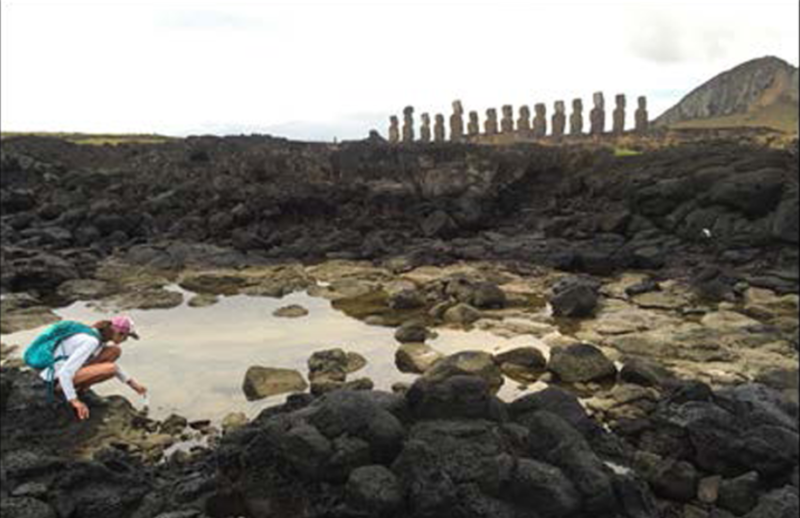How did Easter Islanders survive without wells or streams?

Enlarge / A freshwater seep in the tidal zone near Tongariki. (credit: Brosnan et al. 2018)
Archaeologists are piecing together more details about how the Rapanui people once erected the formerly enigmatic stone statues, or moai. But one of the island's lingering mysteries is how the Rapanui found enough water to sustain thousands of people on a small island. Easter Island, or Rapa Nui, has no permanent streams, and its three lakes are hard to reach and far from archaeological evidence of settlement. But when European colonists arrived in the late 1700s, thousands of people already lived on the island, and they had to be getting their drinking water somewhere.
According to geoscientist Tanya Brosnan of California State University, the Rapanui probably got at least some of their drinking water from places along the coast where fresh groundwater seeped out of the island's bedrock and into the sea. The resulting mixture would have been brackish but safe to drink, and it could have sustained populations of thousands on an island with few other reliable sources of fresh water. That's common knowledge among the modern Rapanui people, but it hasn't been clear that pre-contact people got their water the same way.
"Our work was certainly not 'discovering' anything that people didn't already know about. Rather, we worked to put together an overall picture of groundwater and its accessibility for past populations," Binghamton University archaeologist Carl Lipo, a coauthor on the study, told Ars.
Read 14 remaining paragraphs | Comments